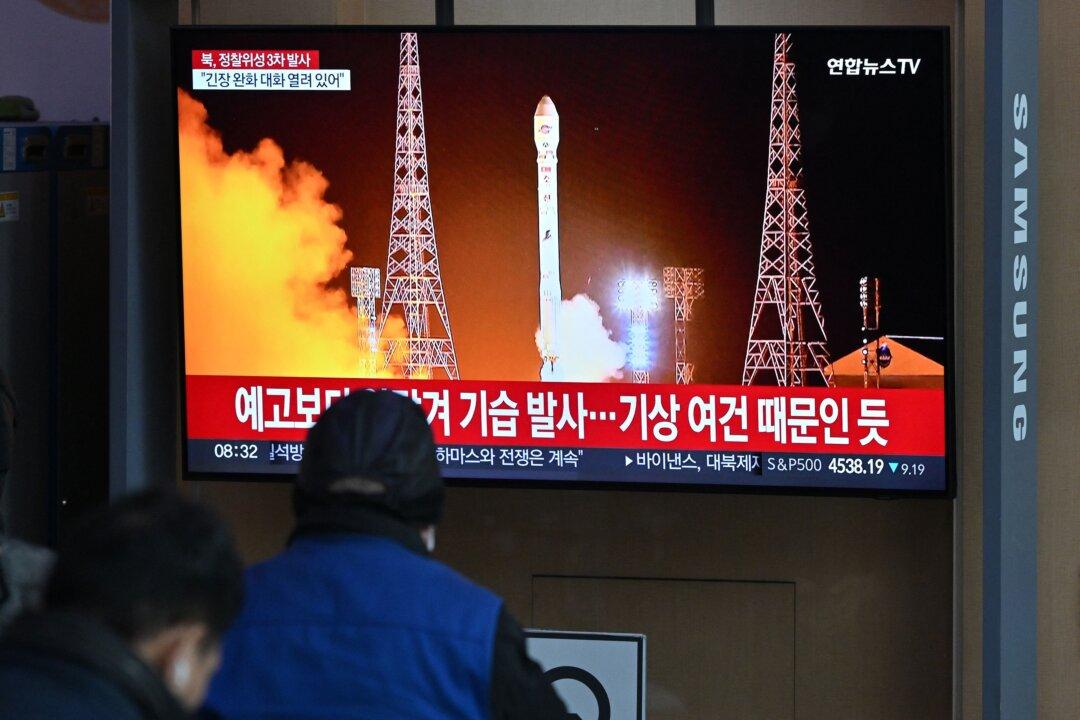On Nov. 21, North Korea launched its first spy satellite into orbit, leading to condemnation from the United States, Japan, and South Korea. This marks the third time this year that the regime attempted to launch a spy satellite. The previous two launches were both unsuccessful.
North Korean dictator Kim Jong-un celebrated a “new era of space power.” In response, South Korea suspended the military accord signed with North Korea in 2018 and resumed frontline aerial surveillance of North Korea.





